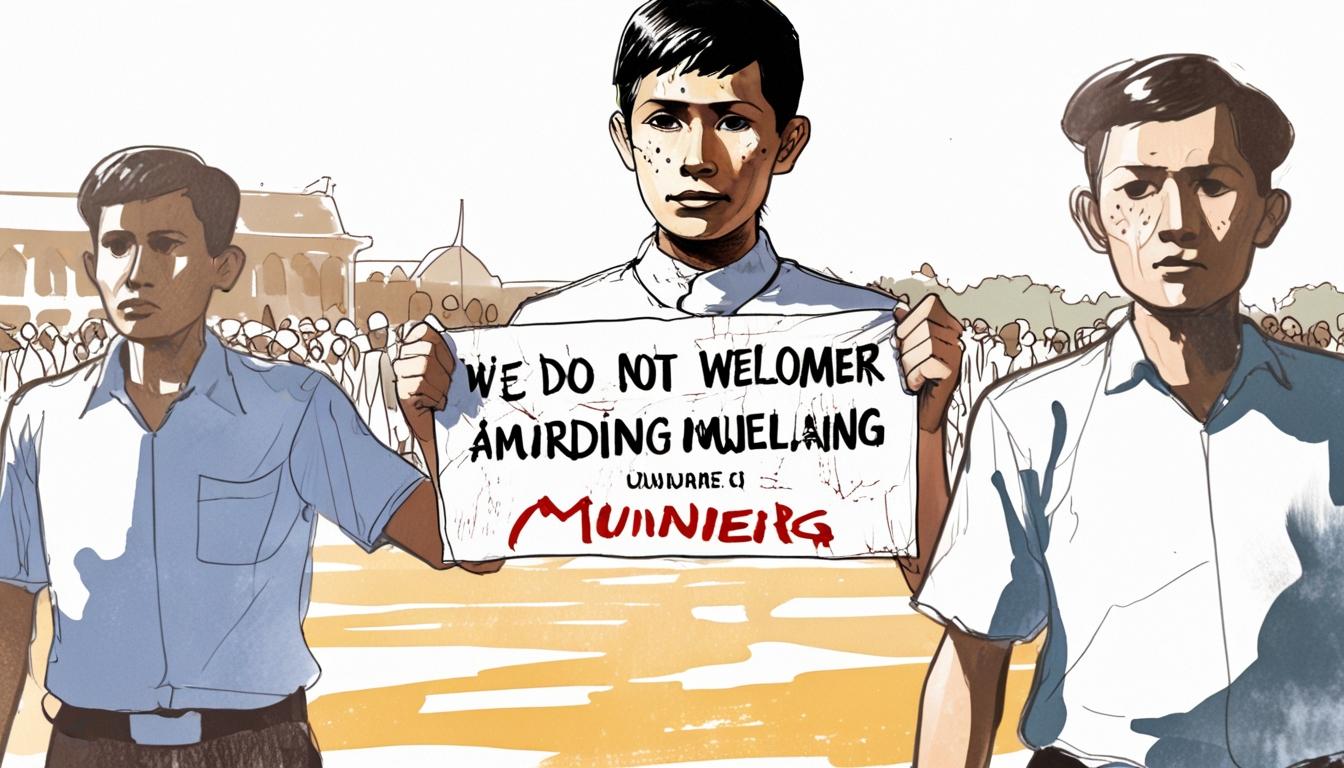Myanmar's military leader, Senior General Min Aung Hlaing, has been at the centre of controversy during a three-day summit in Bangkok, Thailand, organised for nations bordering the Bay of Bengal. The gathering includes significant regional players, such as India and Thailand, and is taking place against the backdrop of ongoing civil unrest in Myanmar, where the military junta has faced accusations of conducting a brutal campaign against dissenters since overthrowing the civilian government of Aung San Suu Kyi in February 2021.
Despite the controversies surrounding his rule, Gen Hlaing attended the summit, drawing protests from human rights organisations and Myanmar’s opposition groups. Banners stating “We Do Not Welcome Murderer Min Aung Hlaing” were displayed by protesters near the summit venue, reflecting the sentiment of many who view his presence as an affront to the ongoing struggle for democracy in Myanmar. The National Unity Government (NUG), established by ousted lawmakers, condemned his attendance, emphasising that he lacks the legitimacy to represent Myanmar on such platforms.
Yadanar Maung, a spokesperson for the Justice for Myanmar campaign group, described the invitation extended to Gen Hlaing as “deplorable,” arguing that it serves to legitimise a military regime that has faced widespread resistance from the populace for over four years.
The summit occurred shortly after a devastating 7.7-magnitude earthquake struck Myanmar, resulting in a reported death toll of 3,145, with over 4,500 injured and nearly 200 individuals still missing. The junta's handling of the humanitarian crisis ensuing from the earthquake has prompted allegations from the United Nations Office of the High Commissioner for Human Rights. Spokesperson Ravina Shamdasani noted a catastrophic humanitarian situation in areas that are not under military control, suggesting that the regime has been limiting aid access in the wake of the disaster.
As Gen Hlaing met with regional leaders—including Thailand’s Prime Minister Paetongtarn Shinawatra and Indian Prime Minister Narendra Modi—he stated intentions to address ways in which other nations could assist with relief operations for the earthquake-affected regions.
Prime Minister Modi advocated for the establishment of a permanent ceasefire in Myanmar during discussions at the summit. A Indian foreign ministry spokesperson conveyed that “political resolution to the conflict is the only way forward, starting with inclusive and credible elections.” However, on the day of Gen Hlaing’s arrival, reports confirmed that airstrikes had been launched by the military in Kachin and Karenni states, violating a temporary ceasefire that had been declared shortly after the earthquake.
The UN’s human rights office expressed concern over continued military operations, highlighting nearly 60 attacks following the earthquake, including 16 since the ceasefire proclamation. High Commissioner for Human Rights Volker Turk urged an end to military actions and called for unrestricted humanitarian access to assist those affected by the quake.
Elaine Pearson, Asia director for Human Rights Watch, remarked that Gen Hlaing's attendance at the summit was an attempt to gain legitimacy in light of his international isolation since the coup. She criticised his actions as indicative of a lack of concern for the well-being of the people of Myanmar, emphasising a greater interest in appearing on the world stage.
The earthquake also affected areas in Bangkok, where at least 22 fatalities, 35 injuries, and significant structural damage were reported, with fear of further casualties as search and rescue operations continued.
Source: Noah Wire Services
